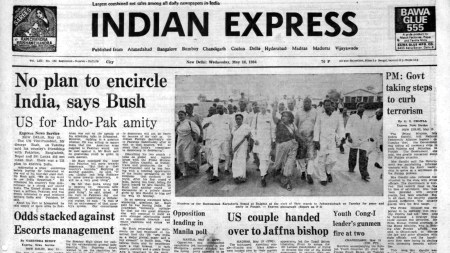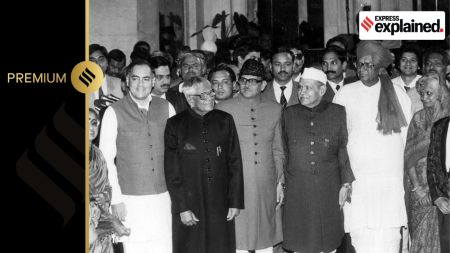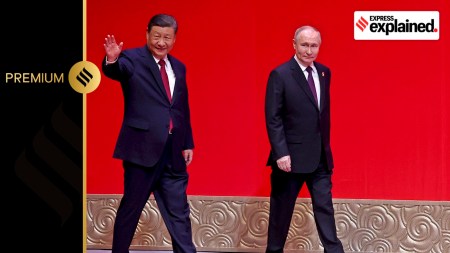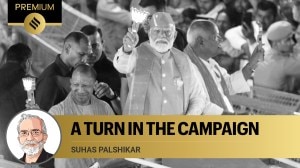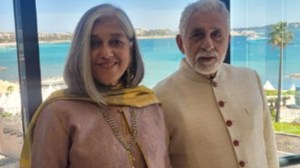- India
- International
Explained: Why global fuel prices are up, how India is impacted
High crude oil prices have contributed to the prices of petrol and diesel regularly setting new record highs across India in 2021.
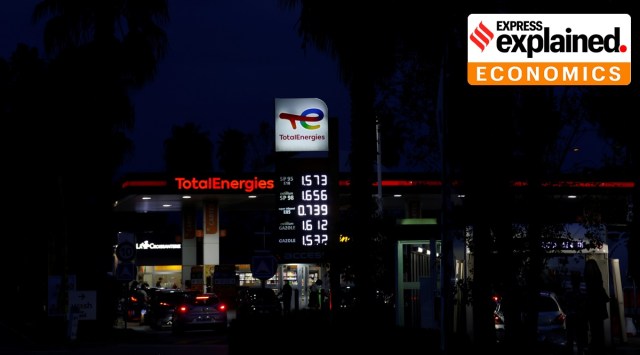 Fuel price signs are seen at a TotalEnergie petrol station in Nice, France. (Reuters/Representational)
Fuel price signs are seen at a TotalEnergie petrol station in Nice, France. (Reuters/Representational)
As the global recovery gains strength, the price of crude oil is nearing its highest level since 2018. The surge in prices has led to record high prices of petrol and diesel in India and the Petroleum Ministry has repeatedly stated that it is speaking to key oil exporting countries to increase the supply of crude and lowering the official selling price for Asia. We examine the causes of high crude oil prices and how India is attempting to tackle them.
Why are fuel prices rising?
The price of Brent Crude breached the $85 per barrel mark earlier this week reaching its highest level since 2018 on the back of a sharp increase in global demand as the world economy recovers from the pandemic. Key oil producing countries have kept crude oil supplies on a gradually increasing production schedule despite a sharp increase in global crude oil prices. The price of Brent crude has nearly doubled compared to the price of $42.5 per barrel a year ago.
In its latest round of meetings, the OPEC+ group of oil producing countries reaffirmed that they would increase total crude oil supply by only 400,000 barrels per day in November despite a sharp increase in prices. The output of the top oil-producing countries – Saudi Arabia, Russia, Iraq, UAE and Kuwait — would still be about 14 per cent lower than reference levels of production post the increase in November.
OPEC+ had agreed to sharp cuts in supply in 2020 in response to Covid-19 global travel restrictions in 2020 but the cartel has been slow to boost production as demand has recovered. India and other oil importing nations have called on OPEC+ to boost oil supply faster, arguing that elevated crude oil prices could undermine the recovery of the global economy.
Low crude oil supply from the US has also played a key role in keeping crude oil prices elevated. Vivekanand Subbaraman, analyst at Ambit Capital said that crude oil producers that had cut production when crude oil prices were low may be waiting to see if high crude oil prices sustain before restarting production.

What is the price impact of increased taxes on fuels?
Elevated tax levels are also playing a major role in the current record high prices in India. The central government had last year increased levies on petrol by Rs 13 per litre and on diesel by Rs 16 per litre to shore up revenues as the pandemic forced a sharp slowdown in the economic activity. Central and state taxes currently account for about 53.5 per cent of the pump price of petrol and about 47.6 per cent of the pump price of diesel in Delhi.
 Source: Petroleum Planning & Analysis Cell, Government of India
Source: Petroleum Planning & Analysis Cell, Government of India
Sources in the finance ministry have however indicated that the government isn’t currently considering lowering levies to pre-covid levels as it has to fund various schemes including schemes to provide free ration to the poor and the national Covid-19 vaccination program.
The rising crude oil prices, and the higher taxation impact, have contributed to the prices of petrol and diesel regularly setting new record highs across the country in 2021. The price of petrol in the national capital is Rs 106.9 per litre up Rs 5.7 per litre in the past month while the price of diesel is at Rs 95.6 per litre up Rs 7 per litre over the same period.
India has seen a faster recovery in the consumption of petrol than of diesel after pandemic-related restrictions with petrol consumption up 9 per cent in September compared to the year ago period but diesel consumption remaining 6.5 per cent below 2020 levels. Diesel accounts for about 38 per cent of petroleum product consumption in India and is a key fuel used in industry and agriculture.
Newsletter | Click to get the day’s best explainers in your inbox
S&P Global Platts Analytics noted in a report that demand for diesel in India was expected to go up in the next few months with the upcoming festive season set to accelerate the economic recovery and push up diesel consumption. Platts Analytics did however predict that India’s total demand for crude oil would only surpass pre pandemic levels in 2022.
Does India’s pitch with oil exporters to lower prices really make a difference?
The government says it has been reaching out to key oil producing countries, asking them to boost production of crude oil. Petroleum minister Hardeep Singh Puri has said that the key reason for high international crude oil prices is that “the supply of crude was being kept below demand” and that this “is designed as a recipe for high prices.” India has long pushed for Middle eastern countries to remove the “Asian premium” that Asian countries have to pay for crude oil as key oil producers set higher prices for India than for the US and European countries. Despite a 40 cent per barrel cut in the official selling price of light crude to Asia, Saudi Arabia is still charging a $1.30 premium on the benchmark price for light crude sold to India compared to a $2.4 discount on the benchmark price for European customers.
Experts have noted that countries like India do not have much bargaining power in the current market scenario where supply is lower than demand and that India’s bargaining power may be reduced further if we try to further diversify crude oil procurement. Also, the level of output and pricing benchmarks are decided by cartels such as OPEC.
In March, then petroleum minister Dharmendra Pradhan had said that India would source crude from whichever country gives India the best price and business terms. India had moved to lower crude oil procurement from middle eastern countries in favour of procurement from Latin American and African nations after Saudi Arabia and other OPEC nations did not raise their crude oil production schedule despite rising crude oil prices.
Saudi Arabia in response hiked the shipping cost of crude to India for July shipments to push back on India’s move to diversify imports.
India’s leading state owned oil refiners are also looking to club their demand to secure better deals on oil procurement. Experts noted however that while bunching of demand may help secure a better deal, an attempt to diversify consumption could conversely lead to lower discounts from individual countries.
More Explained
EXPRESS OPINION
May 18: Latest News
- 01
- 02
- 03
- 04
- 05



